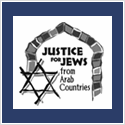Bay Area Jews from Egypt, Libya and Tunisia worry about their former Arab homelands
J Weekly of Northern California
September 15, 2011
By Dan Pine
As Tahrir Square filled with hundreds of thousands of Egyptians, all demanding liberty, equality and fraternity, the world looked on in amazement. The so-called Arab Spring, which began last December, had by February fully blossomed in Cairo.
Also watching intensely from his Palo Alto home was Albert Bivas. The retired physicist knew Tahrir Square well. As a boy, he attended a school not far from it.
Bivas, 70, is an Egyptian Jew, raised in cultured elegance at a time when Cairo was a cosmopolitan world city. He spoke French as his first language and lived in Zamalek, a wealthy neighborhood located on an island in the Nile.
But Bivas’ idyllic upper-class life came to a halt in 1956 when he and his family, like many other Egyptian Jews, fled after the rise of President Gamal Abdel Nasser, a fierce Egyptian nationalist and staunch enemy of Israel. The Bivas family moved to France to start a new life.
Decades later, Albert Bivas watched his former countrymen peacefully overthrow the oppressive regime of President Hosni Mubarak. He couldn’t help but feel joy.
“I was supporting the people,” Bivas said in his distinctively French accent. “I hoped that the people wake up, take their lives in their hands and get rid of those who did not allow them to grow, to earn money, to have decent lives.”
He also frets over the outcome. Will the Egyptian people establish a democratic state, or would radicals take advantage of the disorder? And what will be the new Egyptian policy toward Israel and the Jews?
These questions plague not only pundits and international policymakers, but also Jews from Muslim countries witnessing the foment of the Arab Spring. Bay Area Jews born in those lands watch, wait and worry about their home countries.
With the chaos and near-tragedy of the Egyptian mob attacking the Israeli Embassy in Cairo on Sept. 9, and the subsequent reestablishment of martial law, those concerns grew more intense.
“[Egyptians] don’t have the know-how,” Bivas said. “I’m afraid the only groups organized enough are Islamist groups, groups we would call terrorists, with no respect for life. In the name of ideology, they may hijack the wonder of becoming free. People will have fought to become free and end up giving their freedom away.”
Bill Moran, a Livermore physicist, was glued to the television following the news from Egypt earlier this year. Born Nabil Mourad, he was raised in Halwan, a Cairo suburb so bereft of Jews, Moran’s parents didn’t tell their son he was Jewish until he had reached his teens.
Before they did, he said, “I learned to hate Jews and how bad the Jews are. Eventually I found out. It was a big shock. My parents did this to protect me and not be ostracized.”
Life for Jews in Egypt grew far more precarious after the 1967 Six-Day War, during which the Egyptian military suffered a humiliating defeat at the hands of Israel. Two years later, at age 17, Moran left his country, exiled at the urging of his own parents, who stayed behind.
He joined a sister, who had previously immigrated to San Francisco. Moran also received help from Jewish Family and Children’s Services. Eventually he graduated from U.C. Berkeley and became a physicist at the Lawrence Livermore Labs. He built a new life in California, though traces of the old fear remained.
“I was afraid of saying I was Jewish for a long time, even though there was no anti-Semitism here,” Moran remembered. “I was just so cautious. Eventually I learned to trust people.”
Moran made a return visit to Egypt nine years ago. He saw for himself the corruption and social decay under Mubarak. That’s why he rejoiced at the sight of mass demonstrations — at least at first.
“One begins to wonder, will the Muslim Brotherhood take over,” he asked. “Will [Egypt] become a fanatic state? What about peace with Israel? I have no crystal ball, but my gut feeling is Egyptians in general are a bit more civilized than Iraqis, Syrians and Libyans. There are a lot of really good Egyptians. Most are just misinformed about the Jews, and they don’t know any Jews.”
Though he doesn’t expect war to break out between Egypt and Israel, as it had four times since the founding of the Jewish state, he is not surprised that Egypt’s border with Israel and Gaza has already become a flashpoint.
“It’s hard to know if they will have a real democracy with moderate leaders,” he added. “The majority of the population is not as fanatic as those [Islamist] groups. But instability can happen. I hope people will recognize the benefits of peace.”
The sustained, relative non-violence of this spring’s Egyptian revolution, despite the government’s brutal response, inspired the world.
That Egyptian revolt came after a peaceful revolt in Tunisia.
Marilyn Uzan of Palo Alto followed news reports during the Arab Spring. She focused on her homeland of Tunisia, the North African country where the revolutions began last December.
Like the uprisings in Egypt, Syria, Yemen and Libya, the Tunisian revolt brought great masses of people into the streets, clamoring for an end to the corrupt rule of President Zine El Abidine Ben Ali.
Uzan, 43, watched as her former countrymen endured a harsh police response yet never lost their poise. By mid-January, Ben Ali and his family had fled to Saudi Arabia. The Tunisian people claimed victory.
“I was extremely proud to see that the people did their own fight,” Uzan said. “It was from their heart. They realized things were unfair. It was a beautiful movement, with very little violence.”
That peaceful approach meshed with Uzan’s sense of her country. She remembers Tunisia, and her hometown of Tunis, as relatively tolerant and progressive, especially for an Arab country.
Her family had lived there for generations, and though Jews did suffer second-class status, Uzan spent her first 17 years in Tunisia free from fear. Her favorite memory: playing on the Mediterranean beaches just north of the city.
“I am very happy about my upbringing there,” she said. “It was a very easy life. It sounds surprising, because so many talk about being mistreated in Arab countries. I experienced almost no racism personally. Everyone knew we were Jews. We did not hide it, we did not feel unsafe or insecure.”
A native French speaker, Uzan left Tunisia for France in 1985 before graduating high school. This was around the time Israel attacked PLO headquarters in Tunis. This led to a time of further uncertainty for Tunisian Jews, a community already in decline.
Uzan lived in France and, briefly, in England, for the next 15 years until, as she put it, “I was imported by my husband,” a Jewish American who brought his new bride to California.
Just as Bivas worries whether Egyptians will navigate the tricky political waters toward democracy, Uzan also wonders whether Tunisia can successful manage the same voyage.
At first, she said, “I thought, ‘My God, that tiny country did so much for the Arab world.’ Then I was very scared and worried. Are they going to make it? It’s not easy to become a democracy. They will need to know how to be independent, have [political] parties, create a new constitution: It’s not something you do overnight.”
Tunisia might have a head start. As a child, Uzan grew up under the rule of the late Tunisian president Habib Bourguiba, a leader sometimes compared to Mustafa Ataturk of Turkey. When he came to power in the mid-1950s, he ushered in reforms such as women’s emancipation, public education and healthcare.
He also protected Tunisia’s Jewish community from the worst abuses seen in other Arab countries. His successor, Ben Ali, evolved into a corrupt leader, condemned by leading human rights organizations for his authoritarian rule.
Ben Ali’s time ran out once the Tunisian people began mass protests last year. He found safety in exile. Not as lucky, Egypt’s Mubarak, now under house arrest and on trial.
The Egyptian and Tunisian revolts surprised the world with their minimal bloodshed. That’s not how things went down in neighboring Libya, which for months has been convulsed in a bloody civil war between supporters and opponents of Libyan dictator Muammar Gadhafi.
For Bay Area Jews of Libyan extraction, such as Dalia Sirkin, the battle there has been anything but inspiring.
“It pains me to see that, in order to have democracy and freedom, bloodshed is the cost,” said Sirkin, 61, a professor of English Composition at San Jose State University. “I really wish them well. I want any country to have the freedom to vote, to travel abroad, to own property. I hope [Libyans] have the freedoms that they denied us.”
By “us,” she means the Libyan Jews, who lived as an oppressed community for centuries and ultimately fled under fire in the wake of the Six-Day War.
Born Dalia Bokhobza in Tripoli, Sirkin grew up speaking Italian as her first language, though she also knew some Arabic and Hebrew. She remembers her home country as a beautiful place. To look at.
“We had the sea and the sand,” she said. “The Italian architecture, the sun, the gardens, the date palms. My memories are rich with beauty.”
Then there was the dark side of life, Sirkin says. “I don’t remember ever living without fear. There was no such thing as walking down the street and not worrying about being physically harassed.”
Unlike the comparatively mild Tunisia, Libya was a hotbed of anti-Jewish hatred. Sirkin lost a childhood friend to anti-Jewish violence. Murders occurred often and went unpunished.
“I don’t remember a single holiday where the Jews going to the synagogues were not harassed,” she went on. “[Muslims} would throw stones. Many synagogues were burned.”
Sirkin’s parents had their assets confiscated. By the time a then-17-year-old Sirkin, her parents and grandparents fled Libya in 1967 — with only one suitcase permitted per person — they knew their centuries-old presence in that country had come to an end.
Her parents and grandparents had a difficult time adjusting to a new life in exile in Rome. But Sirkin thrived. She lived in Rome for 11 years, and spent time studying English literature at Oxford University. She also lived in Israel for a few years, meeting her husband-to-be there.
The couple moved to San Francisco in 1981. They had three daughters, and later divorced.
Watching the Libyan civil war unfold over the last few months, Sirkin was not surprised her home country went down a more violent path than Egypt or Tunisia.
“We also were dealing with a dictator who was not willing to let go,” she said of Gadhafi. “Mubarak to some extent was trying to reach out with a little bit of dialogue. Gadhafi was determined to hold on to his power at all costs.”
Despite the international hope engendered by the Arab revolts, Sirkin counts herself among the pessimists, at least as far as Libya is concerned.
“I don’t know what has changed for the people,” she said. “I don’t think they are more benevolent towards Jews today than they were in 1967, because nothing changed in terms of who they are. We were not malevolent then and they still kicked us out.”
Bivas and Moran belong to JIMENA (Jews Indigenous to the Middle East and North Africa), a Bay Area organization that works on behalf of the nearly 1 million Jews exiled from Arab lands. The two are part of the JIMENA speakers’ bureau, sharing their stories.
With the tumultuous changes sweeping the Middle East, local Jews born in Arab lands realize the story isn’t over.
“The best we in the United States could do is let things happen,” Bivas said. “Let their ideas flourish, let them take responsibility for themselves.”
Speaking of her native Tunisia, Uzan could be speaking of any Arab country undergoing transition.
“We need to wait and see,” she said. “The Islamist movements have been somewhat contained in the past. From what I heard the Jews in Tunis are feeling a little insecure right now, and that’s sad.”
Read article here


